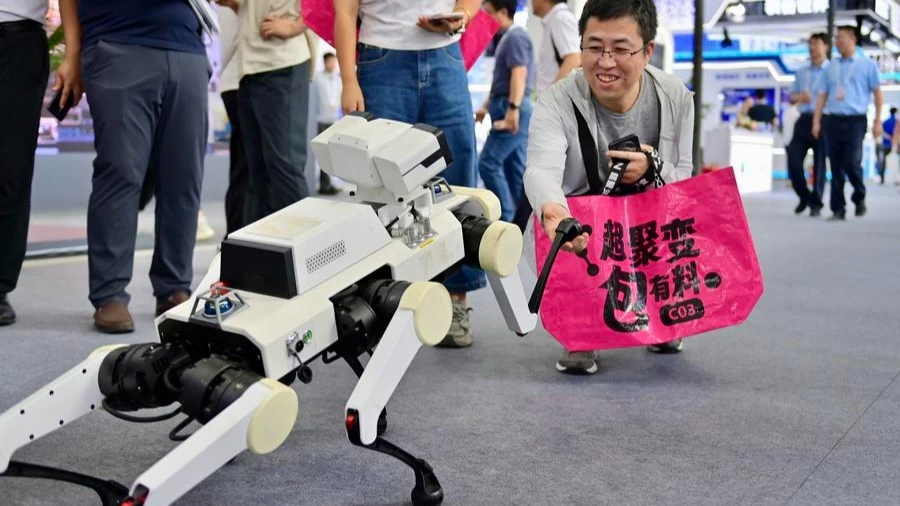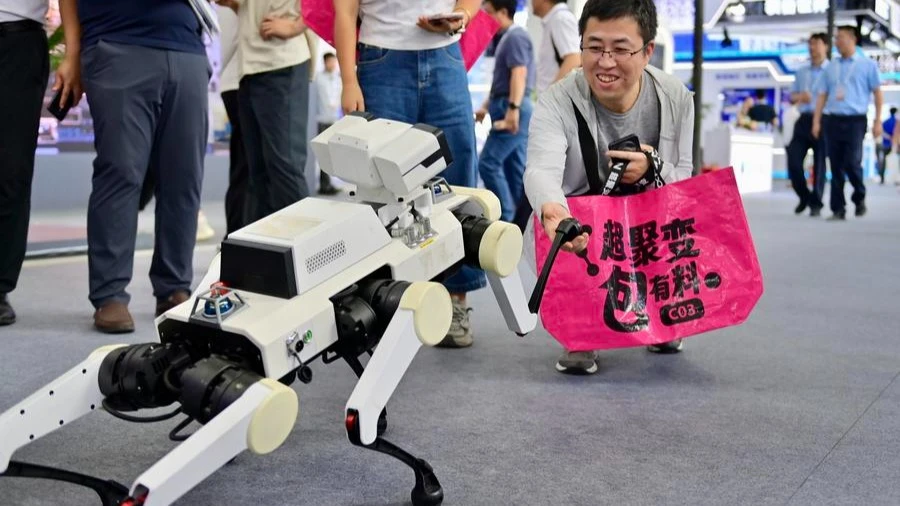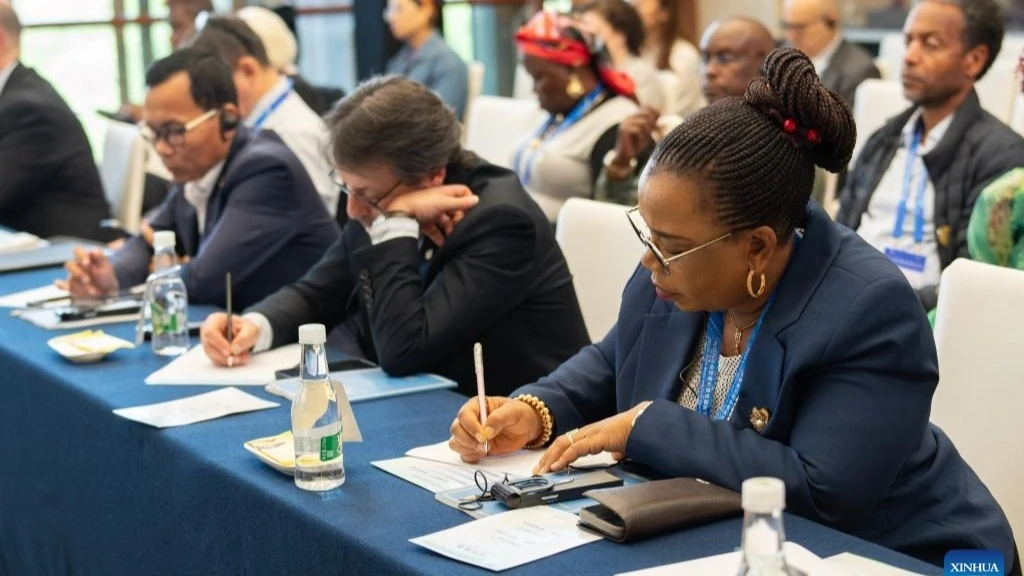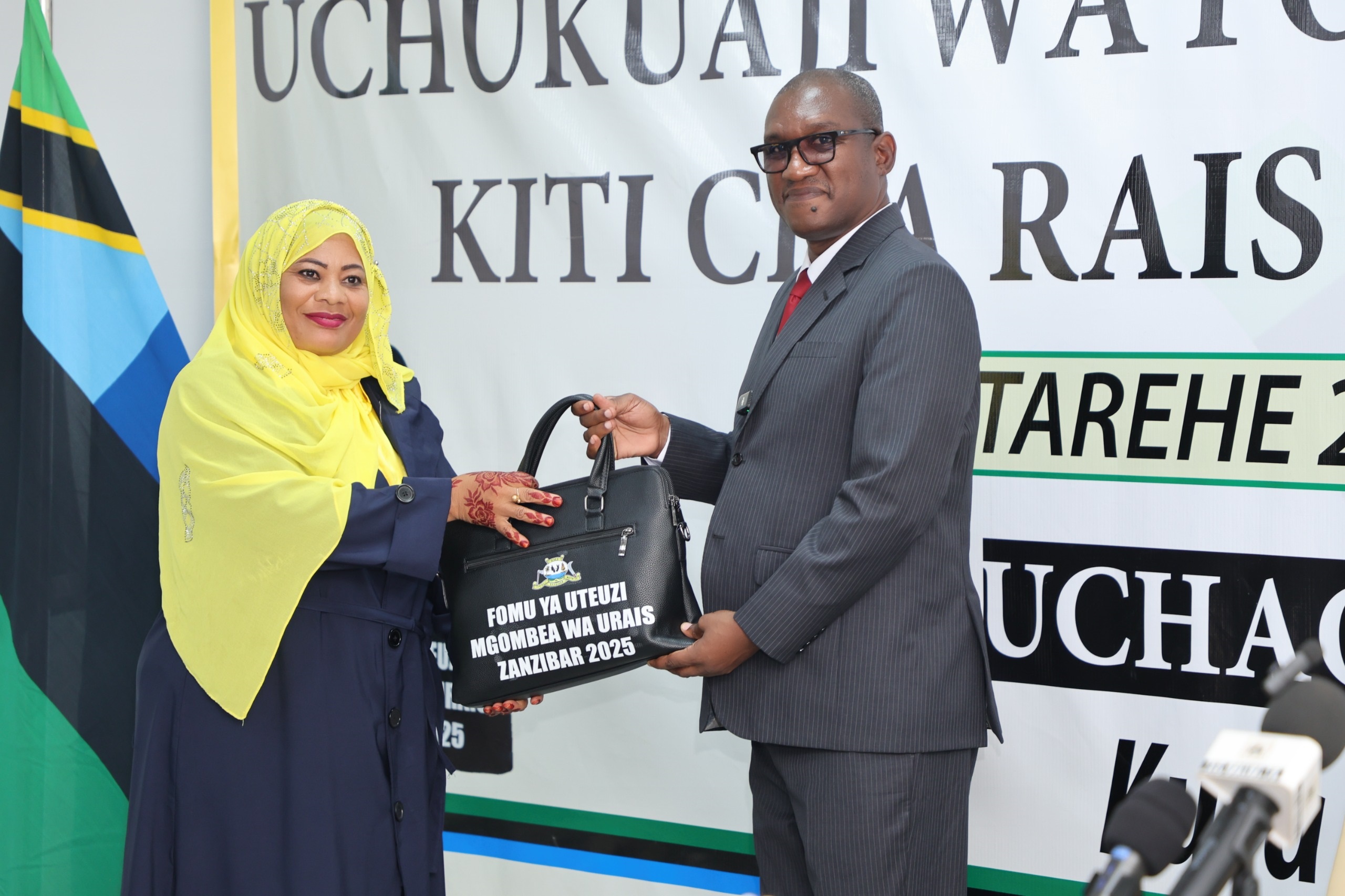"AI Plus" accelerates industrial transformation, enterprise innovation

At the ongoing 2025 Global Industrial Internet Conference, robots are dazzling audiences with a variety of skills, from high-precision welding to deft dual-arm tea pouring.
This remarkable display highlights China's advancements in artificial intelligence (AI), illustrating how the country is making significant strides in integrating AI into industrial production after years of steady progress toward intelligent decision-making.
Held from Sept. 5 to 8 in Shenyang, northeast China's Liaoning Province, the conference's spotlight fell on industrial large models in cooperation with AI agents. These tools have evolved from simple daily interaction aids into powerful "industrial brains" that optimize processes, diagnose faults, and generate code, underscoring AI's growing role in reshaping manufacturing.
China's major steelmaker Ansteel, for instance, has leveraged intelligent models to optimize molten steel processing, reducing production costs by 15 percent and cutting wastewater emissions by 21 percent. By applying "AI Plus" to production and decision-making, companies have improved metrics such as yield rates and energy efficiency.
AI is also making significant strides in animal husbandry. At a pig farm founded by COFCO Corporation in northeast China's Jilin Province, an AI system acts as a 24-hour "intelligent veterinarian," using sound and image recognition combined with a disease knowledge base to identify illnesses in the herd.
"When a pig coughs, the system can automatically locate it and alert staff," said a farm technician, noting that veterinarians can then determine the specific disease through audio analysis.
As early as July 2015, China launched a guideline promoting the "Internet Plus" initiative to advance the integration of internet innovation across all sectors. Since then, online government services have made administrative procedures more convenient and e-commerce has stimulated new consumer vitality. Over the past decade, Internet Plus has become a key driver for industrial upgrading, consumption transformation, and improvements in people's daily lives.
This August, China further published a set of guidelines on deeply implementing the AI Plus initiative, which lay out a systemic approach to strengthening AI supportive infrastructure and accelerating the integration of AI technology across economic and social domains.
"Internet Plus is like building a well-paved information highway, while AI Plus is about enabling the vehicles that run on it to learn to drive themselves," said Pan Hong, executive dean of the Institute of Digital Economy at Liaoning University. He noted that the deepening development from Internet Plus to AI Plus, marked by networking, digitization, and intelligence, will have a broader impact on people's production and daily lives.
By June this year, China's internet penetration rate reached 79.7 percent with 1.123 billion internet users. The country has built the world's largest 5G network, covering over 17,000 5G-enabled industrial internet projects across 41 industrial categories, forming a diverse application scenario repository.
AI Plus not only reshapes manufacturing environments but also empowers the entire chain of research and development, supply and marketing, and services.
At a Haier refrigerator factory in Shenyang, a refrigerator rolls off the intelligent production line every 10 seconds, reducing manual labor by 50 percent and ensuring real-time interconnection among products, machines, and production lines, said Ni Qi, general manager of Shenyang Haier Refrigerator Co., Ltd.
This intelligent transformation also benefits the livelihood sector. "AI automatically summarizes knowledge frameworks and uses AI question-and-answer to verify learning outcomes," said Li Yanfei, general manager of Sunflower Digital Technology in Liaoning. As a digital economy enterprise, Sunflower plans to further increase research investment and develop innovative products, with a focus on implementing personalized teaching and cultivating "AI learning companions."
At this year's Global Industrial Internet Conference, a number of enterprises, universities, and research institutes signed cooperation agreements. Key technologies are also advancing rapidly, with accelerated deployment in emerging sectors such as ultra-large intelligent computing centers, humanoid robots, and emerging biological technologies.
Top Headlines
© 2025 IPPMEDIA.COM. ALL RIGHTS RESERVED






















